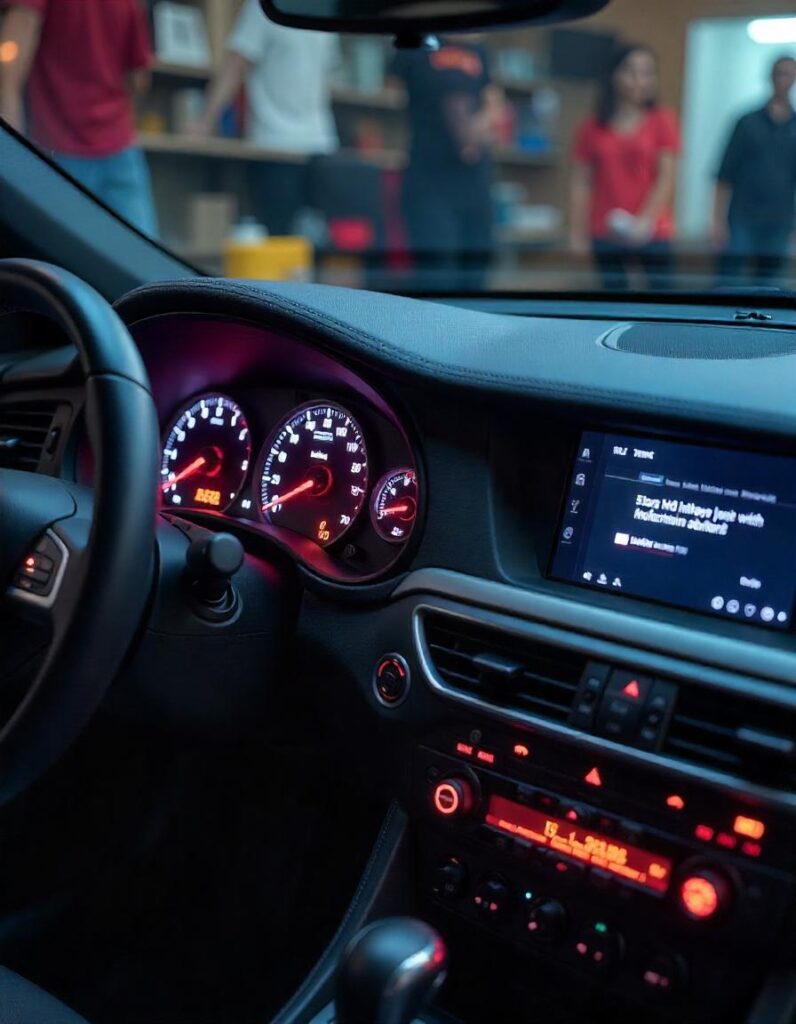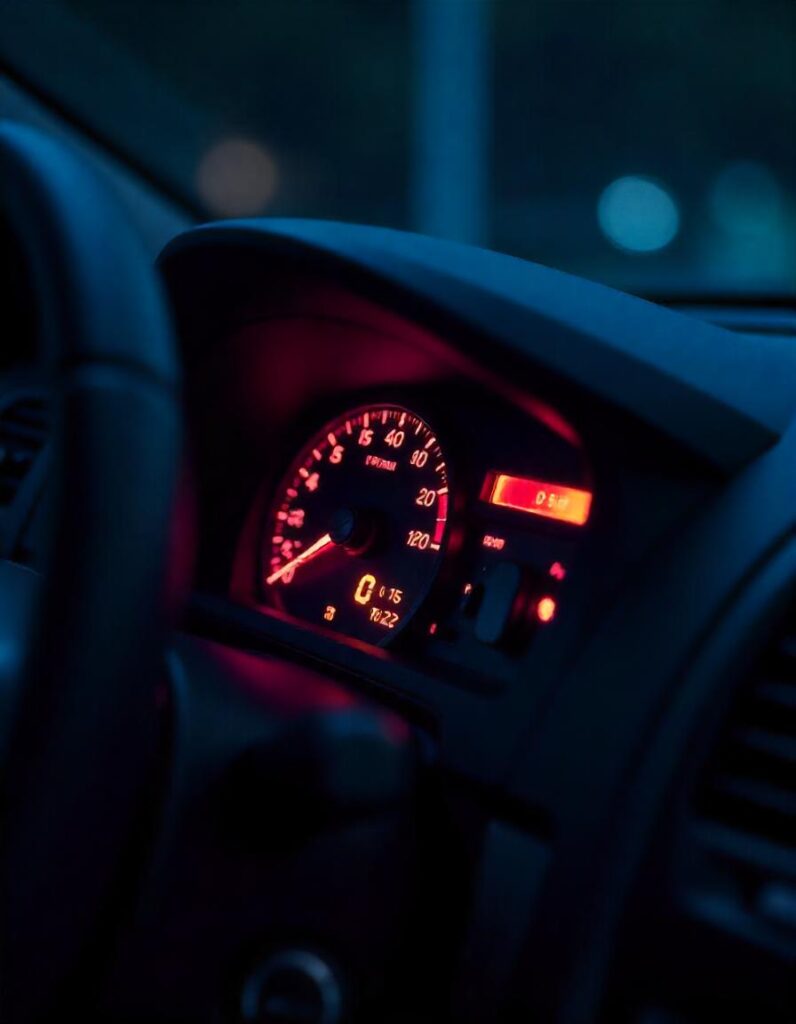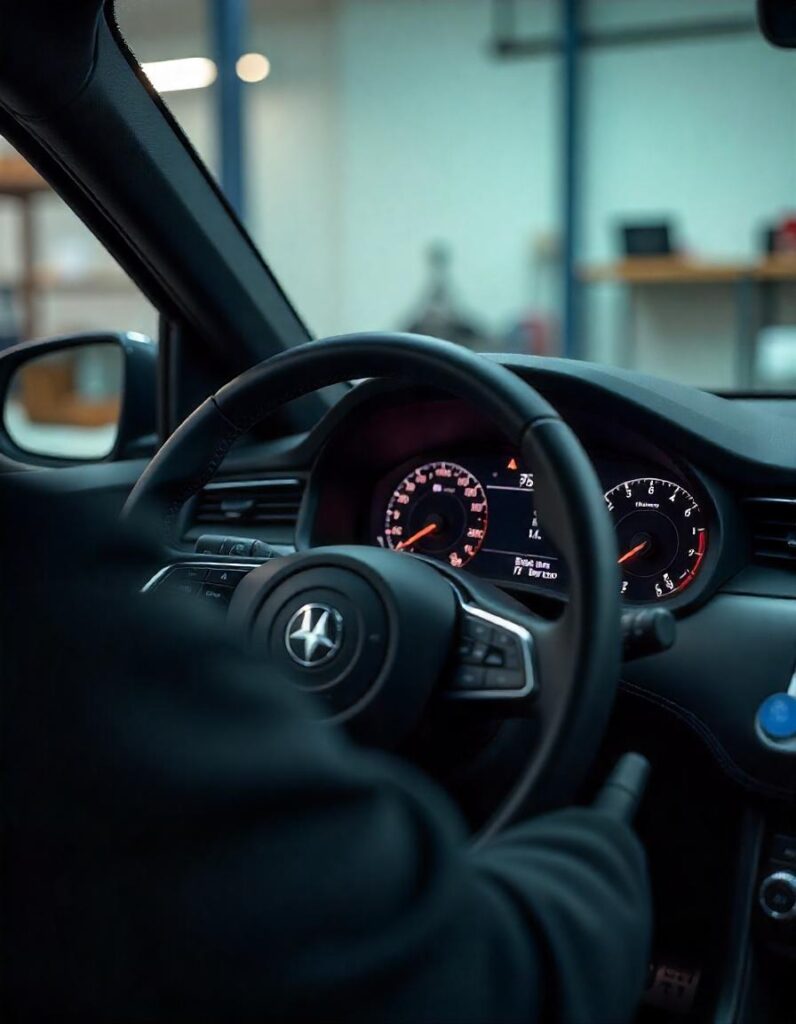Pulse Per Mile Calculator
Track Your Cardiovascular Efficiency
Your Results
Fitness Tip
Your personalized fitness tip will appear here based on your results.
Use our Pulse Per Mile Calculator to easily calculate the number of pulses per mile for accurate speedometer and odometer calibration. Ideal for custom vehicle setups.
Pulse Per Mile Calculator 2025: Accurate Mileage Calibration Tool
In the world of custom vehicles, speedometer swaps, and aftermarket transmissions, accuracy is everything. Whether you’re a car enthusiast tuning your ride or a professional mechanic adjusting a vehicle's electronics, calculating pulses per mile (PPM) is critical. This is where a Pulse Per Mile Calculator becomes an essential tool.
In this guide, you’ll learn what pulses per mile are, why they matter, and how to use a PPM calculator to ensure your vehicle’s electronics function flawlessly.
What is Pulse Per Mile?

Pulse Per Mile (PPM) refers to the number of electrical pulses generated by a vehicle’s speed sensor per mile traveled. These pulses are sent to the speedometer or an electronic control unit (ECU) to determine your vehicle's speed and distance.
Modern vehicles rely on sensors and electronic signals rather than mechanical speedometers. That means any modification to tire size, axle ratio, or transmission can throw off your readings unless properly recalibrated.
Why Is Calculating Pulses Per Mile Important?
Incorrect PPM values can cause several issues:
- Inaccurate Speedometer Readings: You may be driving faster or slower than indicated.
- Faulty Odometer Tracking: Incorrect mileage logging affects resale value and maintenance schedules.
- Cruise Control Malfunctions: Cruise control depends on correct speed inputs.
- Engine & Transmission Tuning Problems: ECU may miscalculate gear shifting or fuel injection timing.
Using a Pulse Per Mile Calculator helps eliminate these problems by allowing you to input your specific vehicle setup for precise calibration.
Factors Affecting Pulse Per Mile
To calculate accurate PPM, you need to consider:
1. Tire Size
Tire diameter directly affects the number of revolutions per mile. Larger tires rotate fewer times per mile, resulting in fewer pulses.
2. Axle Ratio
Also known as the final drive ratio, this determines how many times the driveshaft rotates for each wheel rotation. A higher ratio means more pulses.
3. Speed Sensor Type
Some sensors generate a fixed number of pulses per driveshaft revolution, while others vary depending on vehicle type and installation location.
4. Transmission Type
Aftermarket transmissions or gear ratio changes can impact pulse calculations. It’s essential to use actual data for your specific setup.
How to Use a Pulse Per Mile Calculator
Most calculators require three primary inputs:
- Tire Diameter or Revolutions per Mile
- Axle Gear Ratio
- Speed Sensor Pulse Output (per revolution)
Example Calculation:
Let’s say you have:
- Tire diameter: 28 inches
- Axle ratio: 4.10
- Speed sensor pulses per rotation: 40
Step 1: Calculate revolutions per mile
Use this formula:Rev/mile = 63,360 / (π × Tire Diameter in inches)= 63,360 / (3.1416 × 28) = ~720 rev/mile
Step 2: Multiply by axle ratio and sensor outputPPM = rev/mile × axle ratio × sensor pulses= 720 × 4.10 × 40 = 118,080 pulses per mile
Now you can program your vehicle’s ECU or speedometer using this number.
Best Pulse Per Mile Calculators Online
Here are some reliable online tools for calculating PPM:
1. TireSize.com
A straightforward calculator where you input tire specs and sensor values.
2. Dakota Digital PPM Calculator
Especially useful for Dakota Digital speedometers and gauges.
3. Hypertech Speedometer Calibrator

Provides tools for multiple vehicle models and allows custom inputs.
4. Automotive Forums and Tuning Sites
Some user communities offer downloadable spreadsheets and custom calculators.
Manual vs. Online Calculators
| Feature | Manual Calculation | Online Calculator |
|---|---|---|
| Accuracy | High (if done correctly) | Very High |
| Speed | Time-consuming | Instant |
| User-Friendly | Requires technical knowledge | Beginner-friendly |
| Error Probability | Higher | Lower |
For quick and accurate results, an online Pulse Per Mile Calculator is the smarter choice, especially for beginners or those doing frequent recalibrations.
Troubleshooting Common Calibration Errors
Sometimes, even with a calculator, you may face inconsistencies. Here’s what to look for:
1. Incorrect Tire Measurements
Double-check the actual diameter. Manufacturer specs may differ from real-world measurements under load.
2. Wrong Axle Ratio
Verify axle ratio from your vehicle’s build sheet or inspect the ring and pinion gears.
3. Sensor Malfunction
Make sure the Vehicle Speed Sensor (VSS) is functioning and installed correctly.
4. ECU Lag or Incompatibility
Some ECUs don’t accept custom PPM values without additional programming or modules.
Applications of Pulse Per Mile in Modern Vehicles
- Speedometer Recalibration After Tire or Gear Changes
- Custom Builds (Hot Rods, Kit Cars, Off-Road Vehicles)
- Fleet Vehicle Tracking Accuracy
- Fuel Economy and Distance Logging
- Drag Racing and Performance Tuning
Frequently Asked Questions (FAQs)

Q1: What’s the standard pulse per mile for most vehicles?
A: Most OEM vehicles use values around 8,000 to 16,000 pulses per mile, but this can vary widely based on make and model.
Q2: Can I use GPS to calibrate my speedometer?
A: Yes, GPS speedometers provide real-time speed and distance but are better as reference tools rather than replacements for PPM-based systems.
Q3: Is it necessary to reprogram the ECU after changing tires?
A: In most cases, yes. Any change in tire diameter can affect your speedometer and odometer readings.
Q4: What tools do I need besides a calculator?
A: You may need a scanner tool, reprogrammer, or aftermarket modules like a speed signal interface.
Q5: Does a pulse per mile calculator work for motorcycles or bicycles?
A: Yes, provided you have sensor data and tire size, though most bikes use simpler methods for speed tracking.
Conclusion
A Pulse Per Mile Calculator is a powerful and necessary tool for any vehicle owner dealing with custom setups, new tire sizes, or aftermarket speedometers. It ensures that your speedometer, odometer, and ECU get the correct signals for smooth and accurate operation.
Whether you're working on a race car, truck, or daily driver, proper calibration isn’t just about performance—it’s about safety and compliance. Use a reliable calculator, double-check your inputs, and enjoy a perfectly tuned ride.
